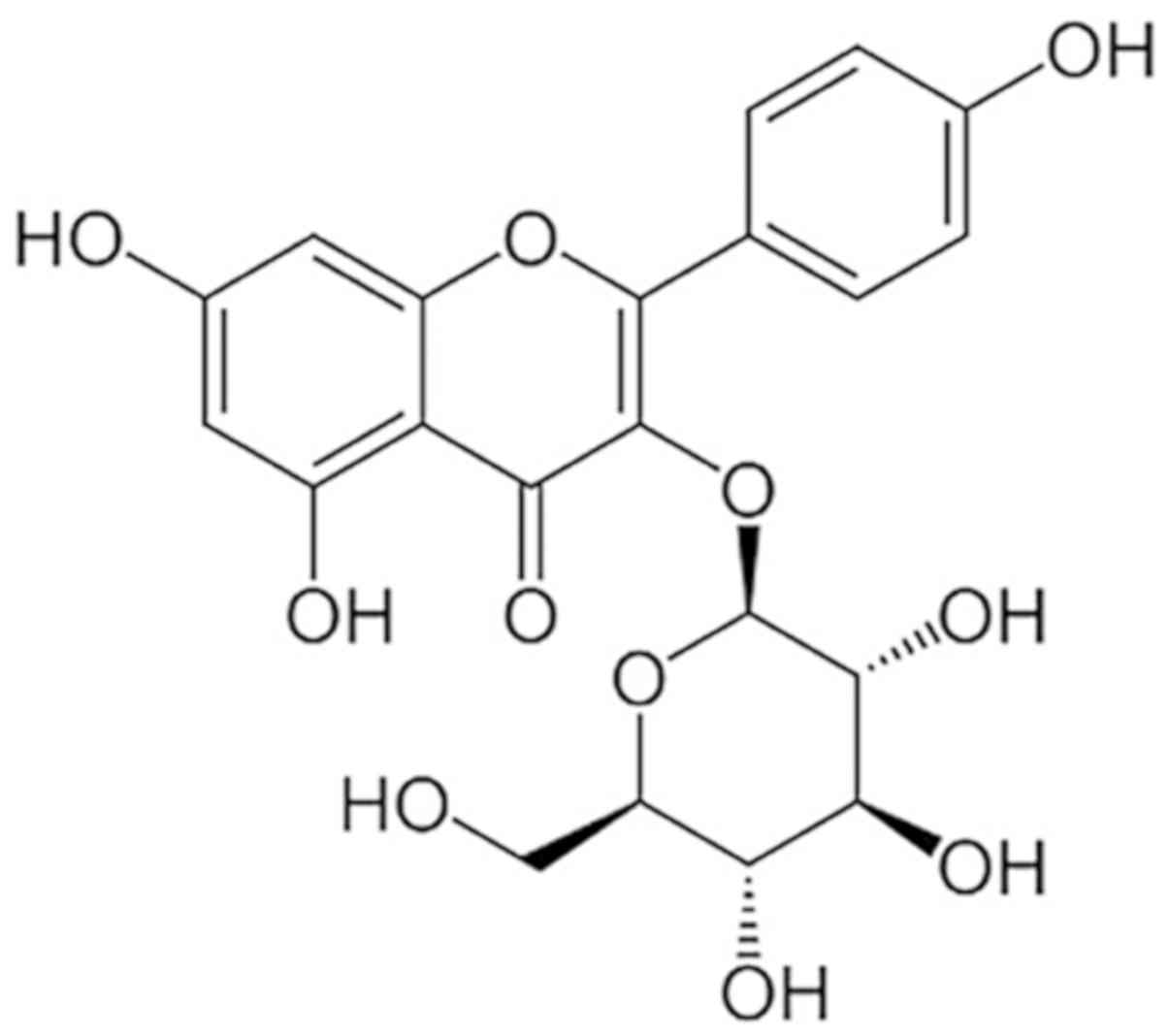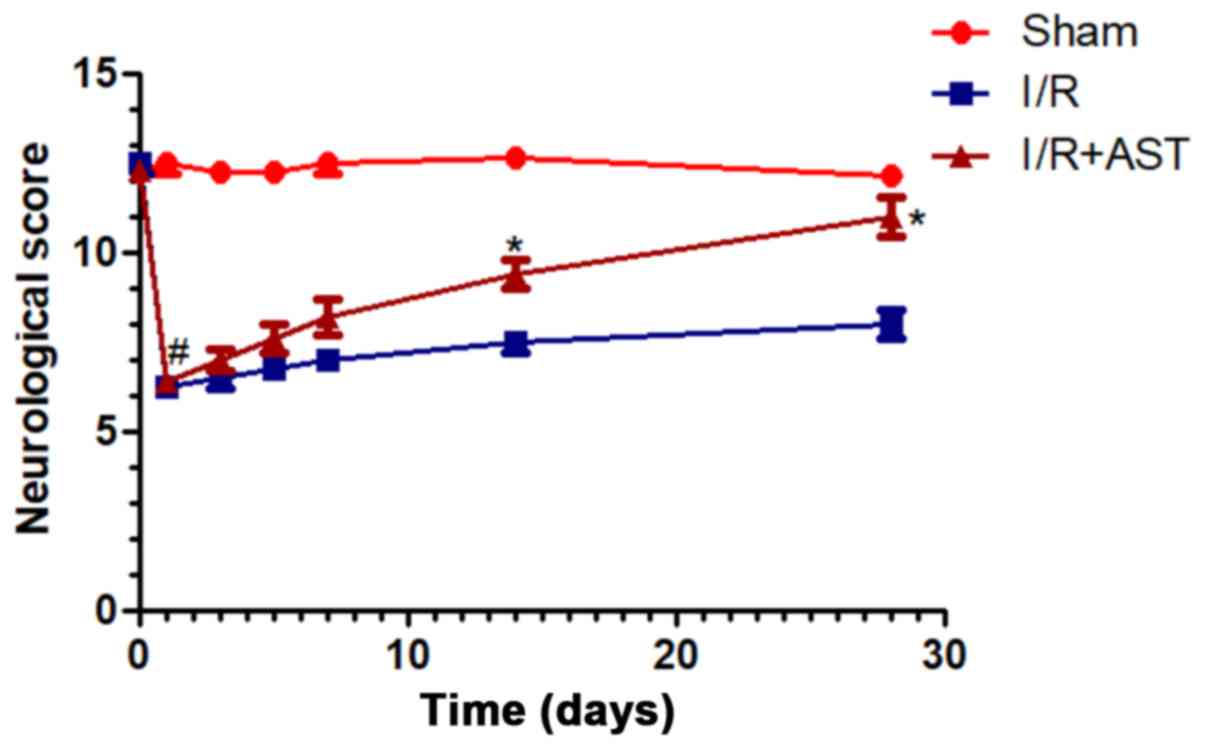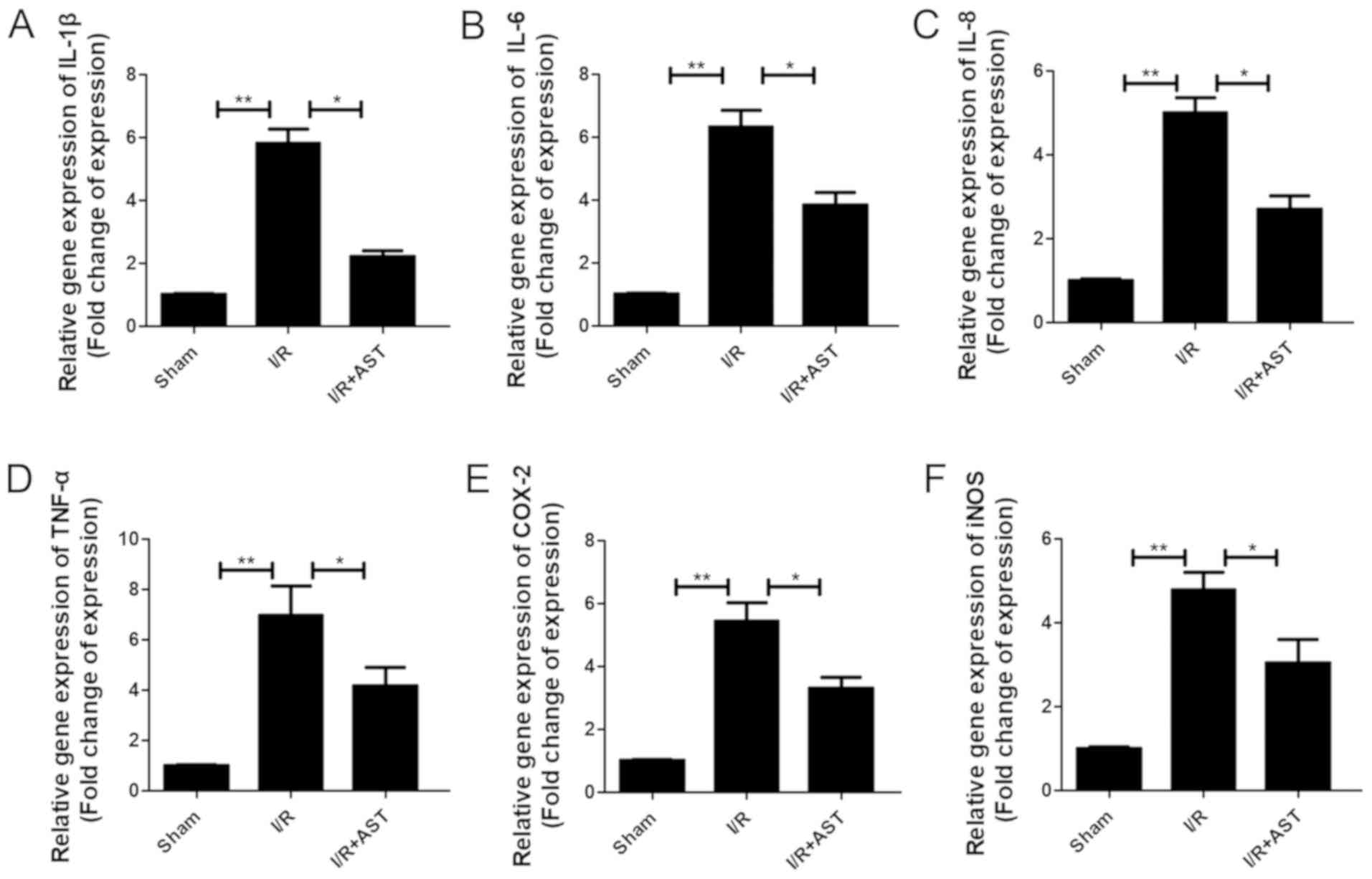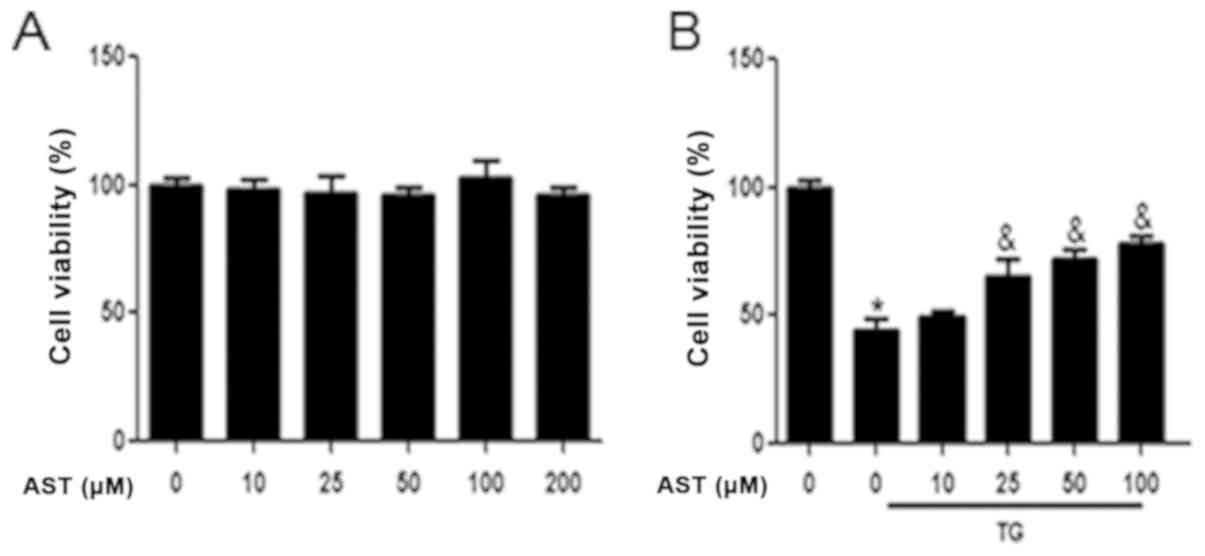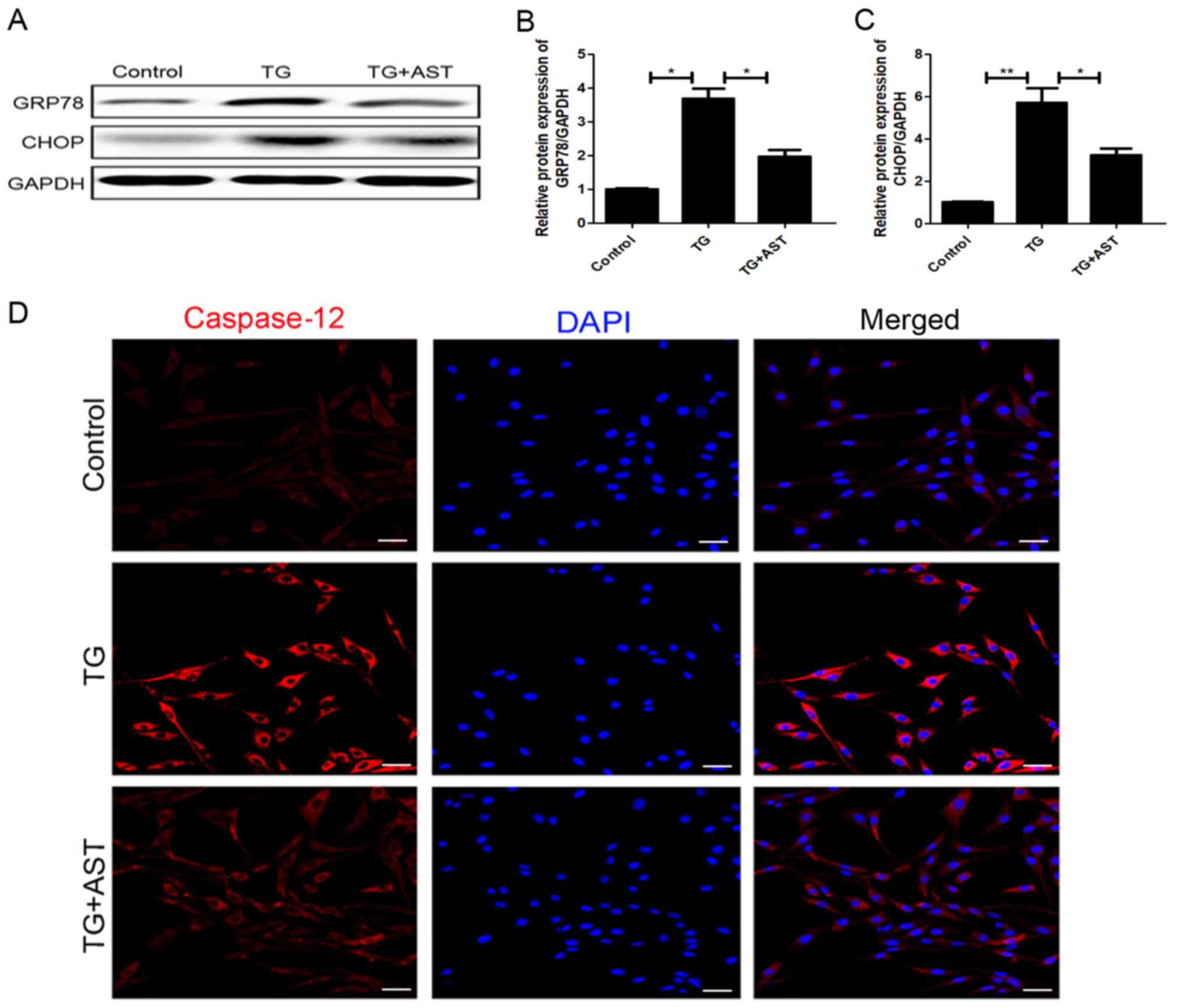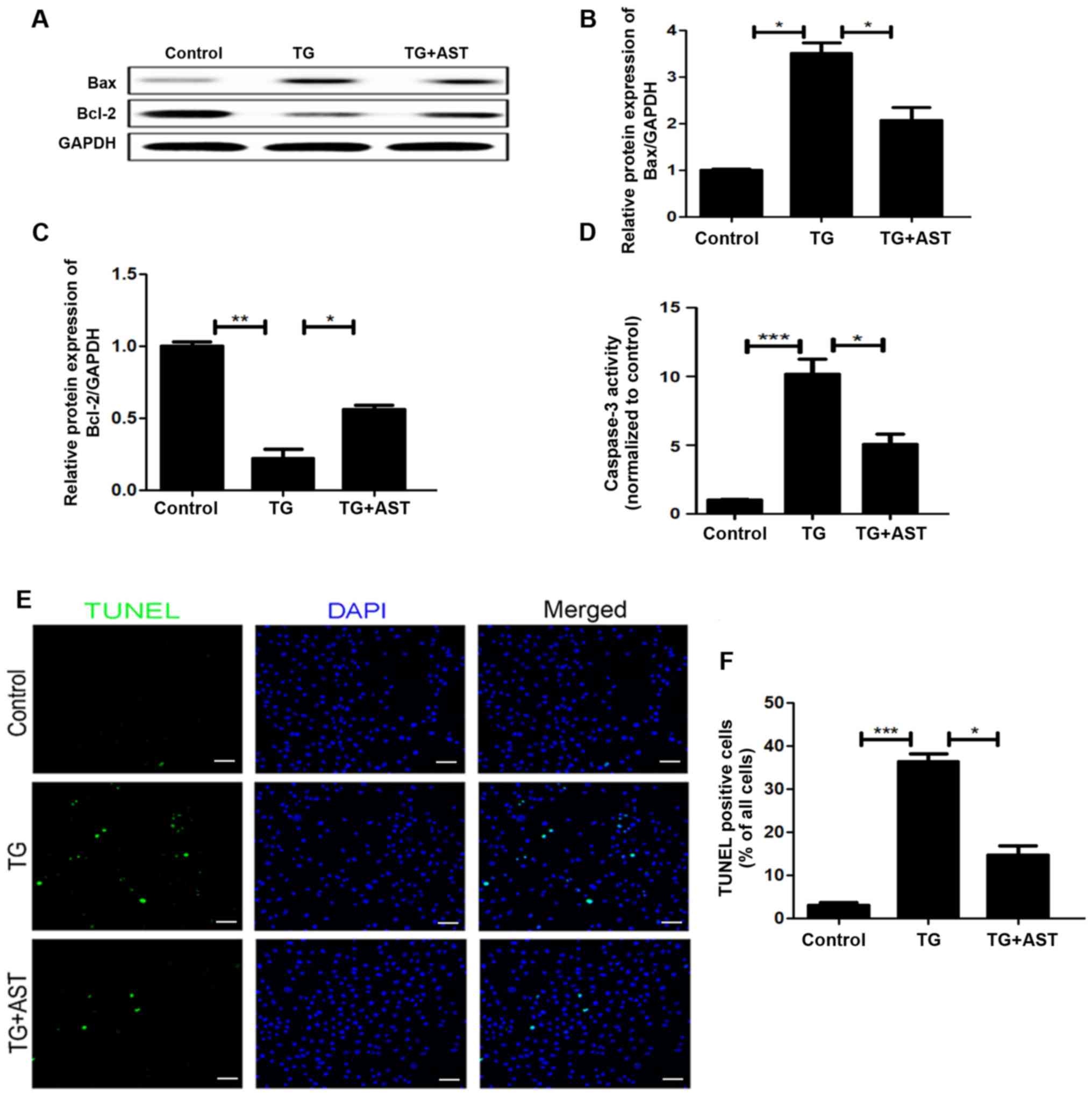|
1
|
Moskowitz MA, Lo EH and Iadecola C: The
science of stroke: Mechanisms in search of treatments. Neuron.
67:181–198. 2010. View Article : Google Scholar : PubMed/NCBI
|
|
2
|
Radak D, Katsiki N, Resanovic I, Jovanovic
A, Sudar-Milovanovic E, Zafirovic S, Mousad SA and Isenovic ER:
Apoptosis and acute brain ischemia in ischemic stroke. Curr Vasc
Pharmacol. 15:115–122. 2017. View Article : Google Scholar : PubMed/NCBI
|
|
3
|
Dziedzic T: Systemic inflammation as a
therapeutic target in acute ischemic stroke. Expert Rev Neurother.
15:523–531. 2015. View Article : Google Scholar : PubMed/NCBI
|
|
4
|
Xiang C, Wang Y, Zhang H and Han F: The
role of endoplasmic reticulum stress in neurodegenerative disease.
Apoptosis. 22:1–26. 2017. View Article : Google Scholar : PubMed/NCBI
|
|
5
|
Sprenkle NT, Sims SG, Sanchez CL and
Meares GP: Endoplasmic reticulum stress and inflammation in the
central nervous system. Mol Neurodegener. 12:422017. View Article : Google Scholar : PubMed/NCBI
|
|
6
|
Nakka VP, Gusain A and Raghubir R:
Endoplasmic reticulum stress plays critical role in brain damage
after cerebral ischemia/reperfusion in rats. Neurotox Res.
17:189–202. 2010. View Article : Google Scholar : PubMed/NCBI
|
|
7
|
Secondo A, Petrozziello T, Tedeschi V,
Boscia F, Vinciguerra A, Ciccone R, Pannaccione A, Molinaro P,
Pignataro G and Annunziato L: ORAI1/STIM1 interaction intervenes in
stroke and in neuroprotection induced by ischemic preconditioning
through store-operated calcium entry. Stroke. 50:1240–1249. 2019.
View Article : Google Scholar : PubMed/NCBI
|
|
8
|
Hetz C: The unfolded protein response:
Controlling cell fate decisions under ER stress and beyond. Nat Rev
Mol Cell Biol. 13:89–102. 2012. View
Article : Google Scholar : PubMed/NCBI
|
|
9
|
Lee JY, Maeng S, Kang SR, Choi HY, Oh TH,
Ju BG and Yune TY: Valproic acid protects motor neuron death by
inhibiting oxidative stress and endoplasmic reticulum
stress-mediated cytochrome C release after spinal cord injury. J
Neurotrauma. 31:582–594. 2014. View Article : Google Scholar : PubMed/NCBI
|
|
10
|
Kim MS and Kim SH: Inhibitory effect of
astragalin on expression of lipopolysaccharide-induced inflammatory
mediators through NF-κB in macrophages. Arch Pharm Res.
34:2101–2107. 2011. View Article : Google Scholar : PubMed/NCBI
|
|
11
|
Han XX, Jiang YP, Liu N, Wu J, Yang JM, Li
YX, Sun M, Sun T, Zheng P and Yu JQ: Protective effects of
Astragalin on spermatogenesis in streptozotocin-induced diabetes in
male mice by improving antioxidant activity and inhibiting
inflammation. Biomed Pharmacother. 110:561–570. 2019. View Article : Google Scholar : PubMed/NCBI
|
|
12
|
Karna KK, Choi BR, You JH, Shin YS, Cui
WS, Lee SW, Kim JH, Kim CY, Kim HK and Park JK: The ameliorative
effect of monotropein, astragalin, and spiraeoside on oxidative
stress, endoplasmic reticulum stress, and mitochondrial signaling
pathway in varicocelized rats. BMC Complement Altern Med.
19:3332019. View Article : Google Scholar : PubMed/NCBI
|
|
13
|
Nan D, Jin H, Deng J, Yu W, Liu R, Sun W
and Huang Y: Cilostazol ameliorates ischemia/reperfusion-induced
tight junction disruption in brain endothelial cells by inhibiting
endoplasmic reticulum stress. FASEB J. 33:10152–10164. 2019.
View Article : Google Scholar : PubMed/NCBI
|
|
14
|
Soromou LW, Chen N, Jiang L, Huo M, Wei M,
Chu X, Millimouno FM, Feng H, Sidime Y and Deng X: Astragalin
attenuates lipopolysaccharide-induced inflammatory responses by
down-regulating NF-κB signaling pathway. Biochem Biophys Res
Commun. 419:256–261. 2012. View Article : Google Scholar : PubMed/NCBI
|
|
15
|
Metz GA and Whishaw IQ: Cortical and
subcortical lesions impair skilled walking in the ladder rung
walking test: A new task to evaluate fore- and hindlimb stepping,
placing, and co-ordination. J Neurosci Methods. 115:169–179. 2002.
View Article : Google Scholar : PubMed/NCBI
|
|
16
|
Livak KJ and Schmittgen TD: Analysis of
relative gene expression data using real-time quantitative PCR and
the 2(-Delta Delta C(T)) method. Methods. 25:402–408. 2001.
View Article : Google Scholar : PubMed/NCBI
|
|
17
|
Rabinstein AA: Treatment of acute ischemic
stroke. Continuum (Minneap Minn). 23:62–81. 2017.PubMed/NCBI
|
|
18
|
Bakthavachalam P and Shanmugam PST:
Mitochondrial dysfunction-silent killer in cerebral ischemia. J
Neurol Sci. 375:417–423. 2017. View Article : Google Scholar : PubMed/NCBI
|
|
19
|
Ma XD, Song JN, Zhang M, An JY, Zhao YL
and Zhang BF: Advances in research of the neuroprotective
mechanisms of cerebral ischemic postconditioning. Int J Neurosci.
125:161–169. 2015. View Article : Google Scholar : PubMed/NCBI
|
|
20
|
Dong J, Yuan X and Xie W: Pentoxifylline
exerts anti-inflammatory effects on cerebral ischemia
reperfusioninduced injury in a rat model via the p38
mitogen-activated protein kinase signaling pathway. Mol Med Rep.
17:1141–1147. 2018.PubMed/NCBI
|
|
21
|
Cheng CY, Kao ST and Lee YC: Ferulic acid
ameliorates cerebral infarction by activating Akt/mTOR/4EBP1/Bcl2
antiapoptotic signaling in the penumbral cortex following permanent
cerebral ischemia in rats. Mol Med Rep. 19:792–804. 2019.PubMed/NCBI
|
|
22
|
Ji K, Xue L, Cheng J and Bai Y:
Preconditioning of H2S inhalation protects against cerebral
ischemia/reperfusion injury by induction of HSP70 through
PI3K/Akt/Nrf2 pathway. Brain Res Bull. 121:68–74. 2016. View Article : Google Scholar : PubMed/NCBI
|
|
23
|
Moritz M, Pfeifer S, Balmayor ER,
Mittermayr R, Wolbank S, Redl H and van Griensven M: VEGF released
from a fibrin biomatrix increases VEGFR-2 expression and improves
early outcome after ischaemia-reperfusion injury. J Tissue Eng
Regen Med. 11:2153–2163. 2017. View Article : Google Scholar : PubMed/NCBI
|
|
24
|
Jin R, Liu L, Zhang S, Nanda A and Li G:
Role of inflammation and its mediators in acute ischemic stroke. J
Cardiovasc Transl Res. 6:834–851. 2013. View Article : Google Scholar : PubMed/NCBI
|
|
25
|
He F, Zhang N, Lv Y, Sun W and Chen H:
Lowdose lipopolysaccharide inhibits neuronal apoptosis induced by
cerebral ischemia/reperfusion injury via the PI3K/Akt/FoxO1
signaling pathway in rats. Mol Med Rep. 19:1443–1452.
2019.PubMed/NCBI
|
|
26
|
Smith CJ, Emsley HC, Gavin CM, Georgiou
RF, Vail A, Barberan EM, del Zoppo GJ, Hallenbeck JM, Rothwell NJ,
Hopkins SJ and Tyrrell PJ: Peak plasma interleukin-6 and other
peripheral markers of inflammation in the first week of ischaemic
stroke correlate with brain infarct volume, stroke severity and
long-term outcome. BMC Neurol. 4:22004. View Article : Google Scholar : PubMed/NCBI
|
|
27
|
Zhang SR, Piepke M, Chu HX, Broughton BR,
Shim R, Wong CH, Lee S, Evans MA, Vinh A, Sakkal S, et al: IL-33
modulates inflammatory brain injury but exacerbates systemic
immunosuppression following ischemic stroke. JCI Insight.
3:e1215602018. View Article : Google Scholar
|
|
28
|
Caso JR, Pradillo JM, Hurtado O, Lorenzo
P, Moro MA and Lizasoain I: Toll-like receptor 4 is involved in
brain damage and inflammation after experimental stroke.
Circulation. 115:1599–1608. 2007. View Article : Google Scholar : PubMed/NCBI
|
|
29
|
Liu B, Zhang YH, Jiang Y, Li L, Chen Q, He
GQ, Tan XD and Li CQ: Gadd45b is a novel mediator of neuronal
apoptosis in ischemic stroke. Int J Biol Sci. 11:353–360. 2015.
View Article : Google Scholar : PubMed/NCBI
|
|
30
|
Qu D, Han J, Ren H, Yang W, Zhang X, Zheng
Q and Wang D: Cardioprotective effects of astragalin against
myocardial ischemia/reperfusion injury in isolated rat heart. Oxid
Med Cell Longev. 2016:81946902016. View Article : Google Scholar : PubMed/NCBI
|
|
31
|
Ma Z, Piao T, Wang Y and Liu J: Astragalin
inhibits IL-1β-induced inflammatory mediators production in human
osteoarthritis chondrocyte by inhibiting NF-κB and MAPK activation.
Int Immunopharmacol. 25:83–87. 2015. View Article : Google Scholar : PubMed/NCBI
|
|
32
|
Noh MR, Kim JI, Han SJ, Lee TJ and Park
KM: C/EBP homologous protein (CHOP) gene deficiency attenuates
renal ischemia/reperfusion injury in mice. Biochim Biophys Acta.
1852:1895–1901. 2015. View Article : Google Scholar : PubMed/NCBI
|
|
33
|
Qi W, Cao D, Li Y, Peng A, Wang Y, Gao K,
Tao C and Wu Y: Atorvastatin ameliorates early brain injury through
inhibition of apoptosis and ER stress in a rat model of
subarachnoid hemorrhage. Biosci Rep. 38:BSR201710352018. View Article : Google Scholar : PubMed/NCBI
|
|
34
|
Yu Y, Zhou H, Xiong Y and Liu J: Exosomal
miR-199a-5p derived from endothelial cells attenuates apoptosis and
inflammation in neural cells by inhibiting endoplasmic reticulum
stress. Brain Res. 1726:1465152020. View Article : Google Scholar : PubMed/NCBI
|
|
35
|
Suyama K, Watanabe M, Sakabe K, Okada Y,
Matsuyama D, Kuroiwa M and Mochida J: Overexpression of GRP78
protects glial cells from endoplasmic reticulum stress. Neurosci
Lett. 504:271–276. 2011. View Article : Google Scholar : PubMed/NCBI
|
|
36
|
Wang C, Jiang K, Gao D, Kang X, Sun C,
Zhang Q, Li Y, Sun L, Zhang S, Guo K and Liu Y: Clusterin protects
hepatocellular carcinoma cells from endoplasmic reticulum stress
induced apoptosis through GRP78. PLoS One. 8:e559812013. View Article : Google Scholar : PubMed/NCBI
|
|
37
|
Cai XH, Li XC, Jin SW, Liang DS, Wen ZW,
Cao HC, Mei HF, Wu Y, Lin ZD and Wang LX: Endoplasmic reticulum
stress plays critical role in brain damage after chronic
intermittent hypoxia in growing rats. Exp Neurol. 257:148–156.
2014. View Article : Google Scholar : PubMed/NCBI
|
|
38
|
Voccoli V, Mazzoni F, Garcia-Gil M and
Colombaioni L: Serum-withdrawal-dependent apoptosis of hippocampal
neuroblasts involves Ca++ release by endoplasmic
reticulum and caspase-12 activation. Brain Res. 1147:1–11. 2007.
View Article : Google Scholar : PubMed/NCBI
|
|
39
|
Li YH, Tardif G, Hum D, Kapoor M, Fahmi H,
Pelletier JP and Martel-Pelletier J: The unfolded protein response
genes in human osteoarthritic chondrocytes: PERK emerges as a
potential therapeutic target. Arthritis Res Ther. 18:1722016.
View Article : Google Scholar : PubMed/NCBI
|
|
40
|
Nakagawa T, Zhu H, Morishima N, Li E, Xu
J, Yankner BA and Yuan J: Caspase-12 mediates
endoplasmic-reticulum-specific apoptosis and cytotoxicity by
amyloid-beta. Nature. 403:98–103. 2000. View Article : Google Scholar : PubMed/NCBI
|















